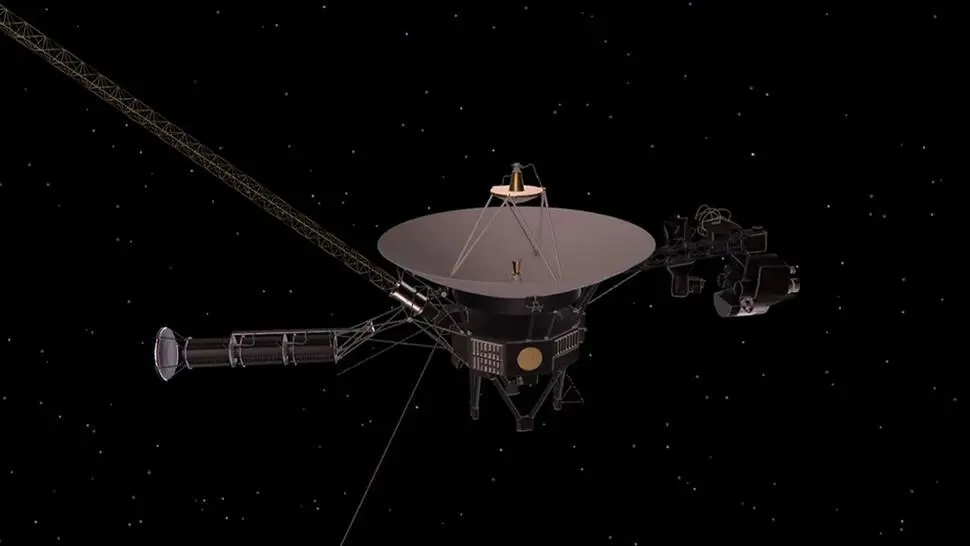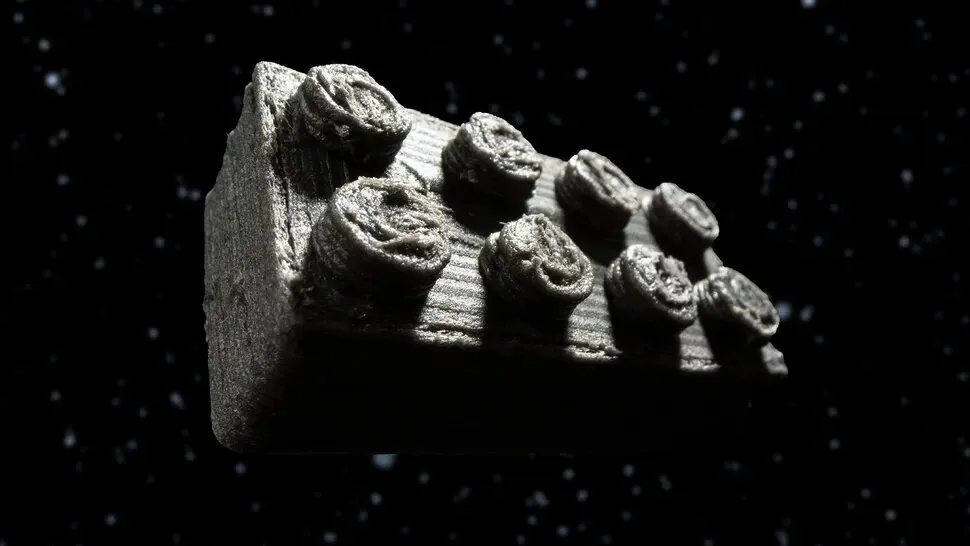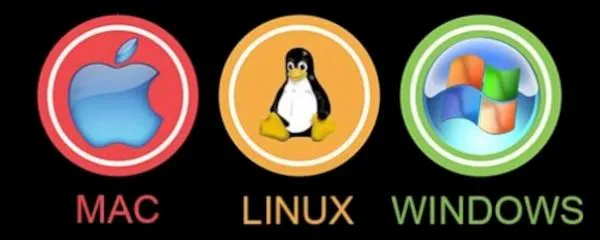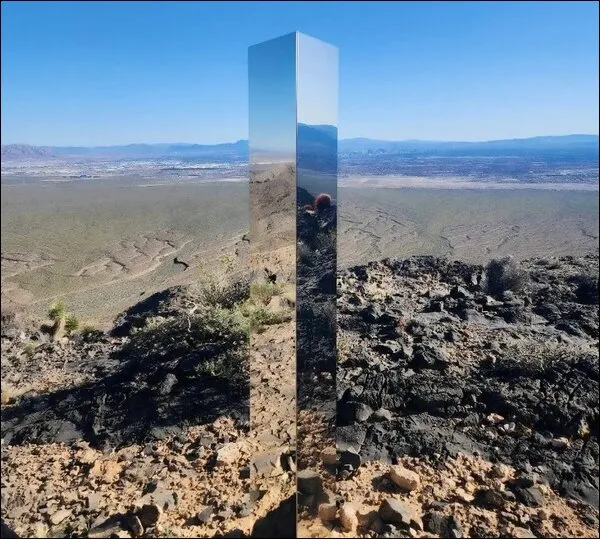| Previous
Page |
PCLinuxOS
Magazine |
PCLinuxOS |
Article List |
Disclaimer |
Next Page |
ICYMI: NSA Recommends Do This To Keep Mobile Devices Safe |
|
by Paul Arnote (parnote)
 How exactly Google ranks websites has long been a mystery, pieced together by journalists, researchers, and people working in search engine optimization. Now, an explosive leak that purports to show 2,500 pages of internal documents appears to offer an unprecedented look under the hood of how Search works — and suggests that Google hasn't been entirely truthful about it for years, according to an article from The Verge. So far, Google hasn't responded to multiple requests for comment on the legitimacy of the documents. Ticketmaster just had a massive data breach — if the hackers behind the attack are to be believed, says an article from Lifehacker. According to HackRead, the ShinyHunters hacking group is claiming it hacked Ticketmaster, stealing 1.3TB of data from 560 million users. The hacking group posted the data on Breach Forums (a site ShinyHunters owns), offering all of its loot for $500,000 for a buyer willing to pay. The reported data set includes personal information such as first and last names, home addresses, email addresses, phone numbers, the last four digits of credit and debit cards, card expiration dates, and customer fraud data. However, it also includes Ticketmaster account information as well, such as ticket sales, event information, and orders. Security research group Zscaler reported they had discovered over 90 malicious Android apps available on the Play Store, according to an article from Lifehacker. The apps had been installed more than 5.5 million times collectively, and many were part of the ongoing Anatsa malware campaign, which has targeted more than 650 apps tied to financial institutions. All identified apps have been removed from the Play Store, and their developers have been banned. However, that won't delete these apps from your smartphone if you downloaded them. If you have any of these apps on your phone, uninstall them immediately.  Image by OpenClipart-Vectors from Pixabay Although some people might worry about the National Security Agency itself spying on their phones, the NSA has some sage advice for iPhone and android users concerned about zero-click exploits and the like: turn it off and on again once per week, according to an article from Forbes. How often do you turn off your iPhone or android device? Completely turn it off and then reboot it, rather than just going into standby mode, that is. That the answer for many people is only when a security or operating system update requires it. That, according to the NSA, could be a big mistake. You can see the NSA's full list of “recommended best practices” for your mobile devices here. Microsoft unveiled “Recall” at its special event on May 20. This Copilot+ PC-exclusive feature promises to bring “photographic memory” to your computer, allowing going back to any app or file you worked with, according to an article from Neowin. To combat privacy concerns, Microsoft published a page with details on how Recall works. However, security researchers strongly disagree with the company's statements. Kevin Beaumont, a cybersecurity expert, published a detailed blog post on Medium where he dug deeper into how Recall works. The verdict is a rather harsh one: stealing everything you viewed or typed on your computer is now very easy. Data on millions of PayPal users should boost its new advertising business run by Mark Grether, who formerly led Uber's advertising group, according to an article from MediaPost. At least that's what the company hopes as targeting signals vanish. PayPal plans to build an ad-sales business on the data it has collected throughout the years. That means first-party data on purchases, spending behaviors and services, and will include data from its Venmo app. Venmo came with PayPal's acquisition of its parent company, Braintree, in 2013 as part of its $800 million deal. Oh yay! Just what we need … more ads littering the interwebs!  Image by Gordon Johnson from Pixabay On May 29, the U.S. Justice Department announced the dismantling of the 911 S5 Botnet, allegedly one of the largest botnets worldwide, and the arrest of its administrator in a joint operation by the FBI and other law enforcement agencies in Singapore, Thailand and Germany, according to an article from The Lane Report. The botnet, consisting of malware-infected computers in 200 countries worldwide, was used to power a variety of criminal internet activities like fraud, harassment or child exploitation between 2014 and 2022. The true prevalence of web traffic generated via bots far extends that of professional botnets like 911 S5. According to data from the annual Imperva Bad Bot Report, almost HALF of all traffic is related to bot activity, with one third of the overall global traffic being connected to malicious programs. A misconfigured North Korean Internet cloud server has provided a fascinating glance into the world of North Korean animation outsourcing and how foreign companies might be inadvertently employing North Korean companies on information technology (IT) projects, according to an article from 38 North. The incident also underlines how difficult it is for foreign companies to verify their outsourced work is not potentially breaking sanctions and ending up on computers in Pyongyang. Astronomer Frank Drake formulated his influential equation in 1961 to estimate the number of civilizations in the Milky Way capable of communicating with us, according to an article from Gizmodo. Our understanding of planetary science has changed a lot since then, leading a team of scientists to propose a pair of important adjustments that produce an answer that could explain the Great Silence. Despite its popularity and intuitiveness, the Drake Equation has faced criticism over the years for its broad assumptions and ambiguous parameters; it often results in an overly optimistic estimate for the value of N — the number of civilizations in our galaxy with which we might be able to communicate. This tends to feed a conundrum known as the Fermi Paradox: If intelligent life is common, why haven't we found any evidence of it? New research published in Scientific Reports offers a potential fix via the addition of two new factors. Planetary scientists Robert Stern from the University of Texas at Dallas and Taras Gerya from ETH-Zurich, the two co-authors on the study, suggest that the presence of both continents and oceans, along with long-term plate tectonics, is critical for the emergence of advanced civilizations. They consequently propose the addition of two factors into the equation: the fraction of habitable planets with significant continents and oceans and the fraction of those planets with plate tectonics operating for at least 500 million years. This adjustment, however, significantly reduces the value of N in the Drake Equation.  Google has accidentally collected childrens' voice data, leaked the trips and home addresses of car pool users, and made YouTube recommendations based on users' deleted watch history, among thousands of other employee-reported privacy incidents, according to a copy of an internal Google database which tracks six years worth of potential privacy and security issues obtained (and reported on) by 404 Media. Starting on June 26, Meta will reportedly update its privacy policy to allow its AI to be trained on your data, according to an article from Lifehacker. The news began circulating on social media after Meta sent out emails and notifications to users in the U.K. and E.U. to advise them of the change, as well as give them a chance to opt-out of the data collection. One UK-based user shared the notification publicly, giving everyone a heads up about the impending changes, which also appear to be slated to affect Instagram users, too. Researchers have discovered a major driver of inflammatory bowel disease (IBD) and several other immune disorders that affect the spine, liver and arteries, raising hopes for millions of people worldwide, according to an article from The Guardian. The breakthrough is particularly exciting because the newly found biological pathway can be targeted by drugs that are already used, with work under way to adapt them to patients with IBD and other conditions.  Image by Kohji Asakawa from Pixabay A group of current and former employees at prominent artificial intelligence companies issued an open letter on Tuesday that warned of a lack of safety oversight within the industry and called for increased protections for whistleblowers, according to an article from The Guardian. The letter, which calls for a “right to warn about artificial intelligence”, is one of the most public statements about the dangers of AI from employees within what is generally a secretive industry. Eleven current and former OpenAI workers signed the letter, along with two current or former Google DeepMind employees – one of whom previously worked at Anthropic. It's no secret that Google abandoned their motto of “Do No Evil” long, long, long ago. Just like with any company that grows as large as Google has, the continual drive for increasing profits has erased and supplanted their core beliefs. They've gone from “Do No Evil” to the embodiment of evil for many, many users. If you've ever thought of “De-Googling” yourself, you'll like the article from Lifehacker. They literally walk you through the process of “quitting Google” and the use of their products. Google has achieved its goal of avoiding a jury trial in one antitrust case after sending a $2.3 million check to the US Department of Justice, according to an article from Ars Technica. Google will face a bench trial, a trial conducted by a judge without a jury, after a ruling today that the preemptive check is big enough to cover any damages that might have been awarded by a jury.  Since the long-overdue death of Flash, we haven't heard much out of the folks at Adobe. They must not have been “feeling much love,” so they created a few changes in their “Terms of Service,” according to an article from Lifehacker. The change has caused an uproar among users of their products. If they didn't agree to the new ToS, they were locked out of the use of their Adobe products, to the point that they also were prevented from uninstalling them. The damage control continues, so much so that Adobe had to post a message to their blog explaining the changes, in an attempt to put the fears generated by the change to rest. YouTube is getting aggressive in its fight against ad blockers, according to an article from Lifehacker. According to the developer of SponsorBlock, an extension that automatically skips ahead of sponsored content in videos, YouTube is now experimenting with “server-side ad injection.” This is quite the escalation. In short, server-side ad injection means YouTube is adding advertisements to the video stream itself. Currently, the company delivers its ads to users as a separate video before the video you chose to watch. That allows ad blockers to identify the ad, stop it from playing, and load your video directly. If the ad is part of the video, however, the traditional ad blocker strategy breaks. Apple could be the first tech giant to be formally charged by the European Commission for violating the Digital Markets Act, according to an article from TechRepublic. The Cupertino firm enforces rules on “steering,” which charge app developers for directing their users towards third-party purchase options, according to the Financial Times. Apple takes a 30% commission from the revenue of any in-app purchases, so when users make app-related payments on their phone browser, for example, it eats into profits.  Image by beasternchen from Pixabay Anywhere Google's cameras have been, you can check out for yourself, without ever needing to leave your house. Of course, if you're uncomfortable with your house appearing on Street View, you don't need to sit back and let the other explorers of the internet spy on your home. Whether you're famous, or you just value your privacy, Google lets you blur your house on Street View, although it isn't obvious how to do so, according to an article from Lifehacker. A word of warning before proceeding: Requesting Google to blur your house on Street View is permanent. The company will not reverse this censorship once it goes through, so make sure you really want to blur your house before going through with the request. In addition, please only ask Google to blur your house: If you do it to someone else's house, they won't be able to undo the blur either. Concrete is perhaps the most commonly used building material in the world. With a bit of tweaking, it could help to power our homes too, according to an article from the BBC. On a laboratory bench in Cambridge, Massachusetts, a stack of polished cylinders of black-coloured concrete sit bathed in liquid and entwined in cables. To a casual observer, they aren't doing much. But then Damian Stefaniuk flicks a switch. The blocks of human-made rock are wired up to an LED – and the bulb flickers into life. Researchers at Massachusetts Institute of Technology (MIT) have found a way of creating an energy storage device known as a supercapacitor from three basic, cheap materials – water, cement and a soot-like substance called carbon black. Scientists working in the emerging field of epigenetics have discovered the mechanism that allows lived experience and acquired knowledge to be passed on within one generation, by altering the shape of a particular gene, according to an article from The Guardian. This means that an individual's life experience doesn't die with them but endures in genetic form. The impact of the starvation your Dutch grandmother suffered during the second world war, for example, or the trauma inflicted on your grandfather when he fled his home as a refugee, might go on to shape your parents' brains, their behaviors and eventually yours.  NASA NASA's Voyager 1 spacecraft is fully operational once more, with all four science instruments returning usable data to Earth, according to an article from Space.com. The problems began in November 2023, when Voyager 1 lost its ability to “speak” with us. More specifically, it started sending to Earth unintelligible data instead of its normal 0s and 1s of binary code. Of course, Voyager 1 is 46 years old — ancient for a spacecraft — so it wasn't entirely a surprise that its health might be waning. And that's not to mention that it's in entirely uncharted interstellar territory, some 15 billion miles (24 billion kilometers) from Earth. Voyager 1's dogged team was determined to not only figure out what went wrong, but also to fix the problem. And they've succeeded! A fundamental shift that concerns ad blockers will happen in the next twelve months, according to an article from Ghacks.com. You may have heard about Google ending support for the old ruleset for extensions in favor of a new one. Google, citing security, privacy, and performance for the change, has been heavily criticized for it. The only browser that retains full content blocking capabilities for extensions is Firefox (and any Firefox fork also). All Chromium-based browsers, including Google Chrome, Microsoft Edge, Brave, Opera, or Vivaldi, won't support best in class ad blockers anymore. An extension like uBlock Origin, which is the ad blocker that is regarded to be the cream of the crop, will be superior on Firefox going forward. McDonald's is ditching its drive-through AI ordering system after too many customers wound up with hilarious, wonky orders from the artificial intelligence tech, according to an article from Fast Company. The fast food giant, which had been testing voice-automated ordering systems at about 100 restaurant drive-throughs since 2021, is now booting it from the menu. It seems to be because AI, at least when it comes to taking orders as people shout them from their car windows, turns out not to be a very good listener. The systems' miscalculations have led to some highly amusing viral videos with absurdly incorrect orders — like a handful of butter, hundreds of chicken nuggets, and ice cream loaded with bacon.  Lego Scientists may have just found the “building bricks” for future moon bases in the toy store — and the public can soon see them there, too, according to an article from Space.com. European Space Agency (ESA) researchers discovered more than inspiration when they looked at Lego sets while working on possible designs for habitats, launch pads and other structures for astronauts to use on the moon as part of NASA's Artemis program. Using the iconic plastic pieces as a model, the ESA team used 3D printers to create similar bricks made in part from meteorite to show that the tubes at the bottom wedge together with the studs at top, just like the toy. Microsoft aims to boost the PC market with artificial intelligence and Windows 11, but a collateral consequence of those moves could be an early trip to a landfill for many computers, according to an article from TechNewsWorld. “Windows 11 itself does not directly contribute to e-waste,” said Kieren Jessop, an analyst with Canalys, a global market research company. “However, due to its hardware requirements, it can indirectly increase e-waste,” he told TechNewsWorld. “A significant share of the global installed base is unable to upgrade to Win11 because of the TPM 2.0 chip, which contributes to Win11's security.” He noted that Canalys estimates approximately 20% of the global Windows installed base can't upgrade its over 200 million devices. Ahhhm … if you have a Win10 computer that can't support Win11, sell or give it to one of your LINUX friends! This could be a boon for Linux users! Scientists have taken another step toward developing an early earthquake warning system, says an article from Extreme Tech. According to new research, satellites orbiting Earth are capable of spotting anomalies in the ground, atmosphere, and ionosphere that eventually give way to earthquakes. These anomalies, called earthquake precursors, have been detected by European and Chinese satellites up to 19 days ahead of disasters in the Mediterranean.  I've used Linux for 30 years. Here are five reasons why I'll never switch to Windows or MacOS, reads a headline on ZDNet, by Jack Wallen. There are several solid reasons for switching to the Linux operating system and, once you do, you probably won't look back. How does this compare to your experience(s)? (Note: these reports happen every week about an asteroid passing close to Earth, and we don't usually mention them here … but this one feels different). Friday the 13th may be considered an unlucky day, but at 5:45 EDT (11:45 CEST) on Friday, April 13, 2029, it will prove the exact opposite when a massive asteroid passes safely past Earth, according to an article from Forbes. Everyone will be watching. Asteroid Apophis is, at about 1,230 feet (375 meters) across, larger than 90% of space rocks. It will pass just 19,635 miles (31,600 kilometers) from Earth's surface, the closest approach of an asteroid of this size that humankind has ever experienced. It will pass between Earth's geostationary satellites and the Atlantic Ocean, just a tenth of the distance between Earth and the moon. Apophis will be visible to the naked eye. As it crosses the Atlantic, a few billion people in Europe, Africa and Asia can see it for a few hours in the night sky if skies are clear. A federal jury in Las Vegas convicted five men this week for their roles in running one of the largest unauthorized streaming services in the United States, which generated millions of dollars in subscription revenue while causing substantial harm to television program copyright owners, according to an announcement from the U.S. Department of Justice. According to court documents and evidence presented at trial, beginning as early as 2007, Kristopher Dallmann, Douglas Courson, Felipe Garcia, Jared Jaurequi, and Peter Huber operated an online, subscription-based streaming service known as Jetflicks. The Jetflicks group used sophisticated computer scripts and software to scour pirate websites for illegal copies of television episodes, which they then downloaded and hosted on Jetflicks servers. The group reproduced hundreds of thousands of copyrighted television episodes without authorization, amassing a catalog larger than the combined catalogs of Netflix, Hulu, Vudu, and Amazon Prime. Dallmann and his co-conspirators made millions of dollars streaming and distributing this catalog of stolen content to tens of thousands of paid subscribers.  LVMPD They're back! The Las Vegas Metropolitan Police Department said members of its search and rescue team found a “mysterious monolith” on a trail outside the valley over the weekend, according to an article from the Las Vegas Review Journal. According to police, the team found the item near the Gass Peak trail, which is located north of the Las Vegas Valley. In December 2020, a similar monolith was found standing under the Fremont Street Experience canopy in downtown Las Vegas. Several nearly identical monoliths have been found in the Western United States in recent years, as well as one in Romania. They have been seen in Southern Utah; on top of Pine Mountain in Atascadero, California; Albuquerque, New Mexico; and the Romanian city of Piatra Nemat. They look like alien artifacts. In part, that's because they are heavily reminiscent of the monoliths of Stanley Kubrick's sci-fi classic “2001: A Space Odyssey,” where vast black monoliths are deposited by aliens to guide human beings from one stage of evolution to the next, wrote Vox reporter Constance Grady. Just in case anyone around here needed another reason to be thankful for PCLinuxOS being and remaining “systemd-free,” here ya' go, from Phoronix. For those running the command “systemd-tmpfiles --purge” and think that this command just deletes your temporary files, think again and watch out. In reality it will delete all files and directories created by a tmpfiles.d entry … including the /home that is created by systemd-tmpfiles' home.conf. With users being bitten in recent days by this behavior when they were just expecting tmp files to be removed, systemd 256.1 is now available and does have a change to avoid inadvertently deleting your all-important home directory. |





